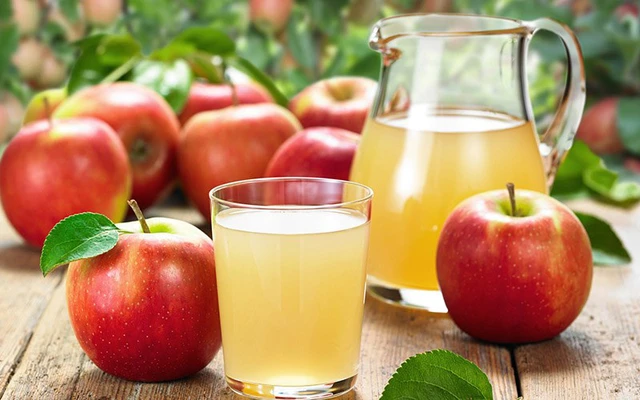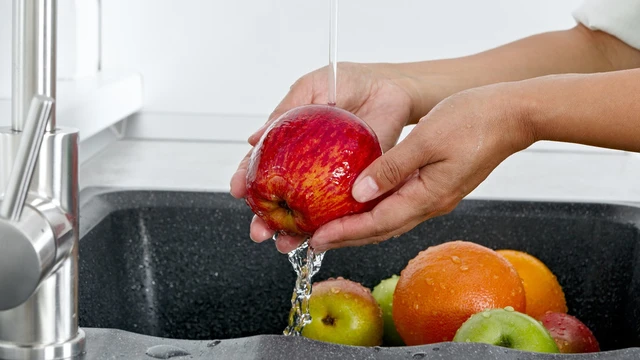Apple juice is a delicious and healthy beverage. However, it is important to note that unpasteurized homemade apple juice can contain harmful bacteria that can cause food poisoning.
1. Health Benefits of Apple Juice
Apples are a very popular fruit that are high in fiber, vitamins, minerals, and antioxidants that are beneficial to health. One notable benefit of apple juice is that it can boost immunity.
Apple juice contains vitamin C, which plays a role in the growth and repair of tissues in the body. Apple juice also contains polyphenols, which are antioxidants that protect the body from free radicals. Free radicals are unstable atoms that can cause diseases such as cancer, diabetes, and heart disease. Apple juice with pulp usually contains more polyphenols.
Antioxidants in apples have the ability to protect cardiovascular health. Apple juice and apples have been shown in a study conducted by the UC Davis School of Medicine to reduce the risk of heart disease. There are compounds found in apples that help reduce LDL cholesterol in the body, which is the bad cholesterol that clogs arteries and increases the risk of coronary heart disease.
Drinking apple juice has been shown to protect the brain’s neurotransmitters, one of which is acetylcholine, an important neurotransmitter that helps prevent Alzheimer’s disease.

Apple juice contains many nutrients that are beneficial to health.
2. Homemade Apple Juice May Be Unsafe
Although fresh and healthy, unpasteurized apple juice can cause food poisoning. The U.S. Food and Drug Administration (FDA) warns that unpasteurized juice, including apple juice, is still at risk of contamination, containing harmful bacteria that can cause food poisoning.
According to the U.S. Food and Drug Administration, when fruits and vegetables are freshly squeezed or consumed raw, bacteria from the produce can enter the juice or apple cider, unless the product or juice has been pasteurized or otherwise treated to kill any harmful bacteria. Pasteurization heats the liquid to kill bacteria such as Salmonella, E. coli, Listeria, reducing the risk of illness.
The U.S. Food and Drug Administration has received reports of outbreaks of foodborne illness, commonly known as food poisoning, that have resulted from drinking fruit, vegetable, or cider juice that has not been treated to kill harmful bacteria.
While most people’s immune systems can usually fight off the effects of foodborne illness, children, older adults, pregnant women, and people with weakened immune systems (such as organ transplant patients, people with HIV/AIDS, cancer, or diabetes) are at risk of serious illness and even death from drinking raw fruit juice.
3. Simple Ways to Ensure Apple Juice Is Safe
When Buying Juice
Most juice products are pasteurized (heat treated) to kill harmful bacteria. However, some grocery stores, food stores, and juice bars produce juices that are not pasteurized or otherwise treated to ensure safety. These unpasteurized products must be refrigerated and must have an unpasteurized warning label on the label.
The FDA warns consumers to look for warning labels to avoid buying unpasteurized juice. Ask the vendor to make sure the juice is processed, especially if the juice is sold in a refrigerated case at a grocery or food store.

Rinse fruit under running water before cutting.
When juicing at home
- Wash your hands for at least 20 seconds with soap and warm water before and after preparing.
- Cut off any damaged or bruised parts of fresh fruit. Throw away any produce that appears to be rotten.
- Rinse all produce under running water before cutting, including produce grown at home or purchased from a grocery store or farmers market. Do not wash fruits and vegetables with soap, detergents, or commercial produce washes.
- If you plan to peel fruits and vegetables before juicing, wash them first so that dirt and bacteria do not stick to the surface when peeling or cutting. After washing, dry the fruit with a clean cloth or paper towel to further reduce bacteria that may be on the surface.





